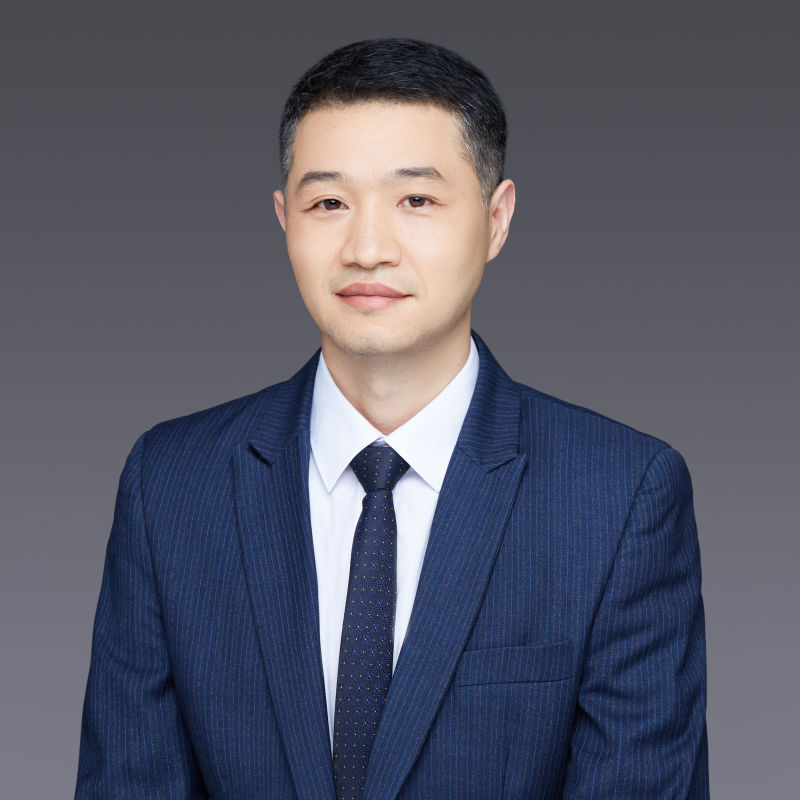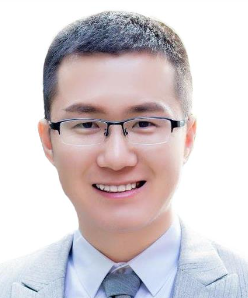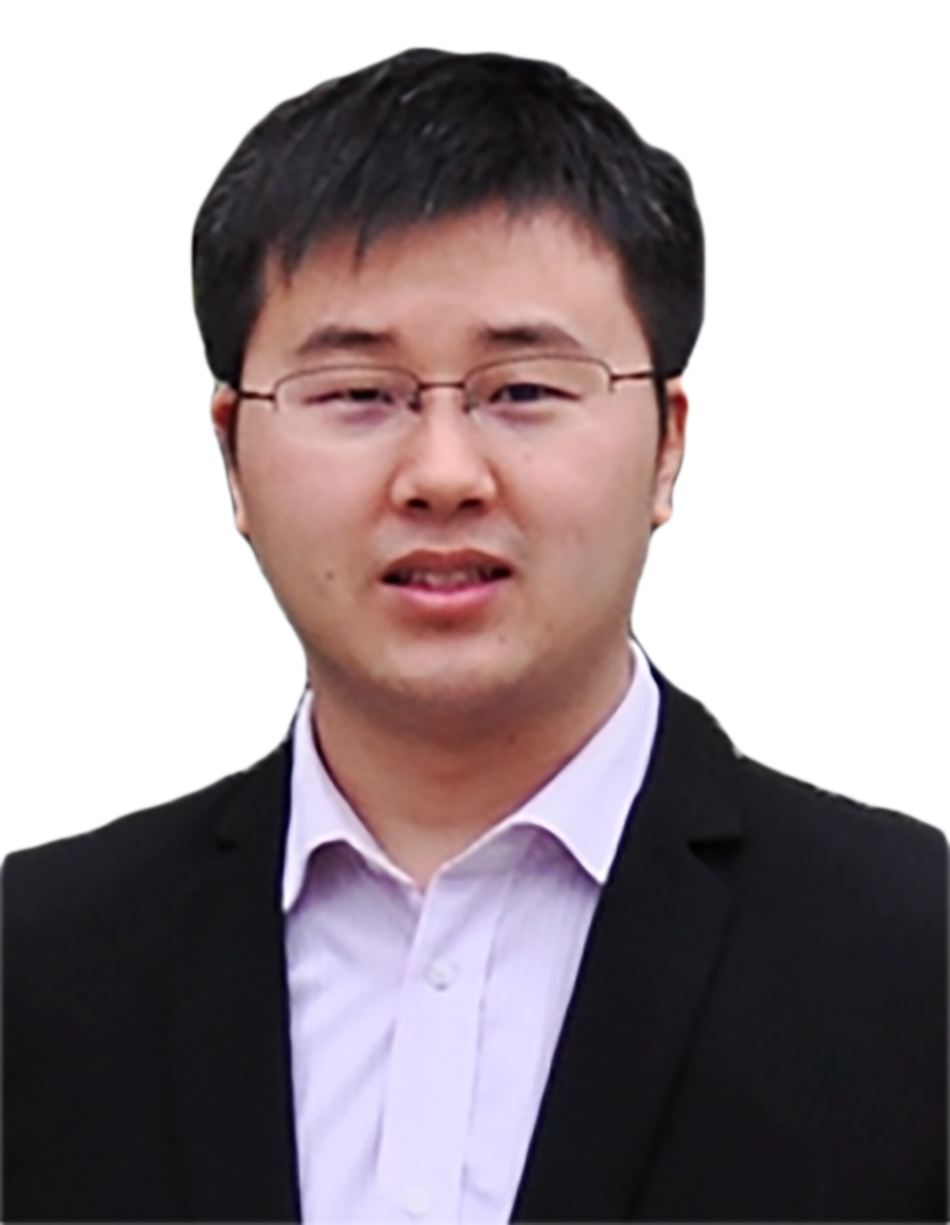Invited Speaker Ⅰ

Prof. Xiaoqin Li
Hunan University of Arts and Science, China
Brief Introduction: Xiaoqin Li is currently a professor at Hunan University of Arts and Science and Standing Director of Hunan Optical Society. She has presided over 3 provincial and ministerial-level projects and 2 horizontal projects, and participated in 2 National Natural Science Foundation projects. She has published more than 12 papers indexed by SCI and EI, edited 2 national-level textbooks and 1 monograph, and obtained multiple authorized national invention patents. Her awards include the Second Prize of the 12th Hunan Provincial Higher Education Teaching Achievement Award, the First Prize of Hunan Provincial Informatization Teaching Competition, and the First Prize of Hunan Provincial Curriculum Ideological and Political Teaching Competition.
Speech Title: The Impact of Equilibrium Optimal Flux Deviation on Traffic Dynamics in Lattice Hydrodynamic Model under V2X Environment
Abstract: The equilibrium optimal flux deviation is explored as a control signal under the V2X environment via traffic modeling of the lattice hydrodynamic model. According to the control theory, the sufficient stable condition can be deduced. In addition, numerical simulation is implemented for the early time impact, the steady-state effect, and the hysteresis phenomenon of traffic flow with the increase of the feedback gain response to the equilibrium optimal flux deviation. The result demonstrates that the equilibrium optimal flux deviation effect has significantly positive influence on the stability of the traffic flow.
Invited Speaker Ⅱ

Prof. Xiaolin Qin
University of Chinese Academy of Sciences, China
Brief Introduction: Qin Xiaolin, Deputy Chief Engineer of Chengdu Institute of Computer Applications, Chinese Academy of Sciences (CAS), and Professor at the University of CAS (UCAS), PhD Supervisor, CCF and IEEE senior member. He is a recipient of the Tianfu Qingcheng Plan for Leading Talents in Scientific and Technological Innovation, a Provincial Academic and Technical Leader, a winner of the Sichuan Provincial Outstanding Youth Fund, a Tianfu Ten-Thousand Talents Plan Technology Elite, an Overseas High Level Studied Talent, and a CAS Western Youth Scholar. He has presided over the National Natural Science Foundation of China, National Key R&D Program Projects, CAS STS Programs, and Major Science and Technology Projects of Sichuan Province in artificial intelligence. He has won awards such as the Provincial and Ministerial First Prize, Second Prize of Sichuan Provincial Science and Technology Progress, CAS President's Excellence Award, China Industry-University Research Cooperation Innovation Award, and China Technology Market Association Golden Bridge Award. He serves as an evaluation expert for the National Science and Technology Progress Award and more than 10 provinces/municipalities including the Ministry of Science and Technology, Ministry of Education, Ministry of Industry and Information Technology, National Natural Science Foundation of China, and Sichuan Province.
Speech Title: Efficient Edge Detection Algorithm and Application for Special Materials
Abstract: The reflection properties of the target surface are important factors affecting the effect of photoelectric ranging. Low reflectivity or unstable reflection characteristics will affect the return quality of the light beam, thereby leading to a decrease in measurement accuracy or failure to obtain effective measurement data. Pure visual ranging does not rely on reflection properties, showing better robustness to special materials with both low reflectivity and high transmittance. This report addresses the problem of blurred boundaries in special materials for pure visual ranging, proposing a Fourier Boundary Feature Network method integrated with a wide-domain capturer. It uses sufficiently wide horizontal shallow branches to guide fine-grained segmentation boundaries, reducing excessive capture of deep semantic information from a geometric structure to avoid mutual interference between positional and semantic information. A cross-shift attention mechanism is proposed to avoid incomplete boundary regions caused by weak light spot reflection noise by embedding fine-grained features. To balance the fitting performance of shallow and deep network layers, a learnable Fourier convolution controller is constructed to reasonably fuse learnable information from shallow and deep layers in a robust manner. The proposed method was verified on three different datasets. Experimental results show that compared with existing advanced methods, the proposed method demonstrates better edge detection performance.
Invited Speaker Ⅲ

Prof. Ke Chen
Zhengzhou University, China
Brief Introduction: Chen Ke is a professor and master's degree supervisor at Zhengzhou University. He has long been engaged in the research of complex data information mining, swarm intelligence optimization theory, and intelligent fault diagnosis, achieving a series of innovative results. In recent years, he has published more than 30 papers in high-level academic journals and conferences such as IEEE TEVC, IEEE TCYB, and IEEE TSMC, of which four have been selected as ESI highly cited papers. He has applied for 13 invention patents, six of which have been authorized. He currently serves as a member of the Young Committee of the Chinese Association for Artificial Intelligence, an expert reviewer for the Ministry of Education's degree theses, and an expert reviewer for Henan Province's science and technology projects. He also acts as a guest reviewer for more than 20 high-level journals/conferences, including IEEE TEVC, IEEE TCYB, IEEE TSMC, and IEEE TAI. He has been selected as a high-level talent in Henan Province, a distinguished young talent in Zhongyuan, and a young talent supported by the Henan Provincial Association for Science and Technology. He has presided over six national/provincial-level projects, including the National Natural Science Foundation of China for Young Scientists and the Special Financial Grant from the China Postdoctoral Science Foundation. He has won two first prizes for scientific and technological academic papers from the Henan Provincial Department of Education, a nomination for the Outstanding Doctoral Dissertation Award from the Chinese Association of Automation, and the Best Creative Idea Award at the Henan Province Postdoctoral Innovation and Entrepreneurship Competition.
Speech Title: Research on Feature Selection Method for Complex Data Based on Evolutionary Computation and Its Applications
Abstract: With the rapid advancement of information technology, the collected data exhibit composite characteristics such as discretization, high dimensionality, strong sparsity, and multi-objectivity. As a result, the information extraction methods based on traditional data analysis techniques can no longer effectively meet the practical application requirements. Feature selection, as an effective data preprocessing technique, can directly select useful features from the original feature space to construct learning models and achieve superior generalization performance compared to the original feature set. It has become a research hotspot in the field of data mining and has been widely applied in text mining, key gene detection, image processing, and other fields. This report will revolve around the issue of acquiring key features of data, integrating evolutionary computation methods, and starting from the perspectives of problem characteristic mining and knowledge transfer, to focus on the design of feature selection methods and their application in the fault diagnosis of rotating machinery.
Invited Speaker Ⅳ

Assoc. Prof. Mengyang Zhang
Shandong Normal University, China
Brief Introduction: Dr. Mengyang Zhang is an Associate Professor and Master’s Supervisor at the School of Information Science and Engineering, Shandong Normal University. He earned his Ph.D. in Control Science and Engineering from Shandong University in 2019 and has since dedicated his research to knowledge representation, intelligent perception and modeling, and task planning for domestic robots. He has authored over 40 publications in leading journals such as IEEE Transactions on Cybernetics, IEEE Transactions on Multimedia, IEEE Transactions on Industrial Electronics (TIE), along with over 10 authorized national invention patents. Dr. Zhang has led four major research projects, such as the National Natural Science Foundation of China (Youth Program) and the Shandong Natural Science Foundation (Youth Program), and actively serves as Deputy Secretary-General of the Intelligent Robotics Committee at the Shandong Association of Automation. He is also a long-term reviewer for prestigious journals including IEEE Transactions on Cybernetics, IEEE Transactions on Multimedia, and Knowledge-based Systems, underscoring his academic leadership and expertise.
Speech Title: Research on Key Technologies of Adaptive Task Planning for Household Robots
Invited Speaker Ⅴ

Assoc. Prof. Xiao Liang
Nankai University, China
Brief Introduction: Xiao Liang is currently an Associate Professor at College of Artificial Intelligence, Nankai University. He received his Ph.D. in Control Science and Engineering from at Nankai University in 2018. His research primarily focuses on intelligent control and perception for unmanned systems. Dr. Liang was selected for the Tianjin Young Talent Support Program and won the First Prize in the Tianjin Intellectual Property Innovation & Entrepreneurship Invention and Design Competition. He has led multiple research projects, including: National Natural Science Foundation of China (NSFC) General & Youth Programs, Sub-task of National Key R & D Programs. He has published over 20 academic papers in journals including IEEE Transactions.
Speech Title: Research on Key Technologies for Aerial Transportation and Manipulation by Multirotors
Abstract: While unmanned aerial vehicles (UAVs) are mainly used for non-contact observation (e.g., monitoring, photography, reconnaissance), multirotors also excel in operational tasks including aerial cable-suspended transportation and manipulation. The aerial transportation system utilizes a sling to connect the load to the multirotor, effectively leveraging the high maneuverability of the multirotor. By installing a multi-link manipulator arm at the bottom of the multirotor, the aerial manipulation system can directly perform active operations on the load, allowing for more complex interactive tasks. These capabilities significantly expand UAV functionality beyond passive observation, allowing active engagement with environments and targets.
Invited Speaker Ⅵ

Assoc. Prof. Jiyu Cheng
Shandong University, China
Speech Title: Multirobot Autonomous Collaboration in Complex Scenarios
Abstract: Multirobot collaboration plays a vital role in many real-life applications, such as inspection, search and rescue and so on. As a main research branch in robotics, it has attracted wide attention and developed rapidly. However, efficient collaboration in especially large and unstructured environments is still a challenging problem. In this talk, we will introduce our recent research on several typical multirobot tasks and talk about our exploration on how the data driven approach can empower the collaboration in a multirobot system.
Invited Speaker Ⅶ

Assoc. Prof. Lin Gao
University of Electronic Science and Technology of China, China
Brief Introduction: Lin Gao received the B.S., M.S. and Ph.D. degrees all in information and communication engineering from the University of Electronic Science and Technology of China (UESTC). From 2018 to 2020, he was a postdoc research fellow at the Department of Information Engineering of the University of Florence. From 2021 to 2023 he was a lecturer with the School of Information and Communication Engineering of UESTC, where he is now an associate professor.His research interests include statistical signal processing, source localization, multi-sensor multi-target tracking, information fusion and multi-vehicle SLAM.
Speech Title: Multi-object Multi-agent Fusion
Abstract: The speak will provide an overview of advanced research in multi-object information fusion, specifically concerning the two topics of multiagent and multiobject information fusion. Multiagent information fusion deals with a network of agents with sensing, processing and communication capabilities that aim to cooperatively monitor a given system of interest. Multiobject estimation aims to detect an unknown number of objects present in a given area and estimate their states. Special attention will be devoted to the Kullback-Leibler average paradigm for fusion of possibly correlated information from multiple agents and on the random-finite-set paradigm for the statistical representation of multiple objects. Applications to distributed cooperative surveillance, monitoring and navigation tasks will be discussed.
Invited Speaker Ⅷ

Prof. Jianwen Huo
Southwest University of Science and Technology, China
Brief Introduction: Huo Jianwen, from Ziyang City, Sichuan Province, born in 1988, PhD, Distinguished Professor at Southwest University of Science and Technology. His research direction is the motion planning and collaborative control of multi-unmanned systems. He has published more than 30 SCI/EI indexed papers as the first author or corresponding author in journals such as Robotica, Journal of Intelligent & Robotic Systems, and International Journal of Intelligent Unmanned Systems. He has been authorized with 10 Chinese invention patents, published one translated book. He has presided over 8 national projects such as the National Natural Science Foundation, Sichuan Natural Science Foundation, and Science and Technology Support, and won the second prize of Heilongjiang Province Technology Invention Award (ranked second).
Speech Title: A Radioactive Source Search Method for Multi-robot Cognitive Differences and Radiation Feature Reconstruction
Abstract: In the development of nuclear energy and the utilization of nuclear technology, the event of loss of radioactive sources sometimes occurs. Exploring a fast and accurate radioactive source estimation method to achieve efficient search for radioactive sources in the accident area is of great significance for ensuring nuclear safety. Aiming at the problems of false detection or failure caused by the loss of data capture of a single robot under the occlusion of obstacles and the scarcity of inference data, etc., an inverse problem modeling method is used to establish a radioactive source estimation model for multi-robot cognitive differences to achieve efficient and accurate localization of radioactive sources. The construction method of the "space-time-feature" correlation 3D environmental radiation feature map is studied to solve the problems of uncertain obstacles, aging estimated values, and incomplete and unintuitive radioactive source information in the search process. A multi-robot "decision-planning-mapping" radioactive source search framework in an unknown environment is constructed to enhance environmental adaptability and search flexibility. The subject can provide scientific support for the establishment of nuclear accident emergency response mechanism.